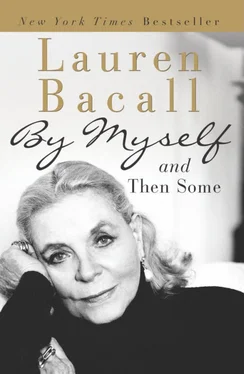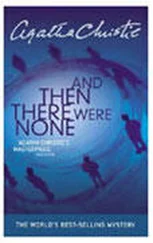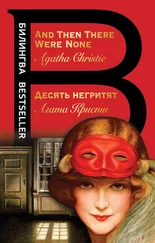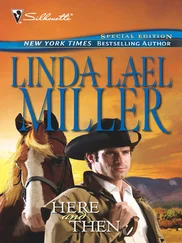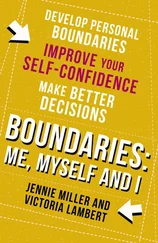Of course after the reviews appeared, everyone was aware that the play wouldn’t run. It was my first theatrical heartbreak – but not my last. One night during the run I stayed overnight with Carolyn Cromwell at the Barbizon, and we stayed up most of the night talking, me again about my hopes and dreams. We sent out to Hamburger Heaven for hamburgers – it made me feel like a character in Stage Door . After eight weeks we closed. Arrangements were being made to play the subway circuit – Brooklyn, the Bronx, and Queens – so called because one got there by subway. That meant another three weeks’ work, one week in each borough.
I immediately resumed pavement pounding, even before the subway circuit began. I auditioned for My Sister Eileen , read once for the part of Eileen, then was asked to see the play that night and come back and read again the following day. Hopes rose – I saw the play, loved the part (I would have loved any part), read again, and didn’t get the job. John Golden was looking for an actress to play Claudia on tour. Dorothy McGuire had made an enormous hit playing in New York. I trapped John Golden outside Sardi’s to ask if I could read for it. He said yes I could and would I come to his office the next morning. Hopes rose again. I went to his office. He asked me if I’d seen the play – of course I hadn’t, I couldn’t afford it. He made arrangements for me to go to a matinee and read afterward. There was a man working for him named Fred Spooner, a warm, friendly man who had been around the theatre for years. He would be in the theatre during that performance and take me backstage for my audition. It was the beginning of another friendship. I made Fred laugh – and my innocence and wild, blind dedication must have appealed to him. For no other reason than that, he helped me – not practically, but emotionally. Claudia was a young married woman who in the course of the play – with her husband, and in dealing with her mother’s terminal illness – grew up. A marvelous part. God, I wanted it! I auditioned for it after the matinee in my old friendly theatre, the St James – on the stage this time. They liked me enough to ask me to see another performance and read again. I rushed to tell Paul Lukas. He thought it was great news and gave me a bit of advice – not to get my hopes up too high, to think carefully of the scenes I was asked to read, to be simple. Fred Spooner gave me confidence, telling me other actresses were being considered, but that the management was obviously interested in me, not just being polite. I remember standing in the back of the theatre watching that play, living every moment of it. Inch by inch I was feeling a part of the theatre, less an outsider, with each audition I had, each office I became more familiar with, each producer who came to recognize me. It was a good, warm feeling.
After the performance Fred and I walked up 44th Street and stood outside the theatre looking at the darkened marquee as I verbalized my dream of seeing my name in lights up there. The next day – another audition. The Golden office gave me a script, told me to look at two specific scenes. I did, and read again that afternoon. There was hushed talk in the orchestra and I was thanked and told they would call me. ‘Oh, not again,’ I thought, ‘I’ll never hear another word from them, nothing will ever happen to me.’ I went home depressed. My mother told me not to worry, something would happen, don’t give up too easily. ‘They asked you back three times, they must have liked you.’ Of course she was right, I thought, trying to convince myself – they must have liked me or they wouldn’t have had me read so many times. But lurking in the back of my mind were visions of the unknown actress who had also auditioned – who had more experience than I – who was better. Even then, with all my bravado, and though I did believe in my ability to be good and succeed, I never really thought I was better than anyone else. I’m still not sure. But I would never give up. My ten-year plan still had nine years to go.
A few days later the Golden office called and asked me to come down again. Having prepared myself for the worst, I got on a bus headed for 44th Street. Mr Golden told me he and the others, stage managers, had liked my readings. The part of Claudia was cast for the tour – I trembled a little at that – but the job of understudy was open and they were offering that to me. It would mean being on the road for a year and playing the part if the leading lady was ever sick. I came to life with that offer, thanked him profusely, told him I would have to talk it over with my mother – I was still only seventeen – and would let him know by Monday. That would give me a few days’ grace and I’d have a chance to ask Paul Lukas’ advice – he knew the theatre better than anyone else I knew, and was clearly the one to talk to.
I had no alternatives to Claudia at this point, though I had signed a contract with the Walter Thornton model agency. His was the least of the big three – Powers, Conover – but I was in no position to choose. I had done a small amount of photographic modeling for Montgomery Ward catalogues – nothing exciting, and my future in the modeling area looked far from brilliant. When I went to see Paul Lukas to tell him what had happened, I really was in a quandary. I didn’t know what going on tour entailed. Paul told me, ‘Look, if you accept this job it will mean (a) that you’ll be out of New York for a year, and (b) that the chances of your ever playing the part are slim. During that year you might have an opportunity to act in a new play here. If you’re away for a year, that is a year out of your life without being able to really practice your craft and learn. I would say: don’t take it.’ What he said made sense. If I accepted Golden’s offer, I would lose touch with all the people on Broadway who had come to know me a little – at least enough to speak to me or allow me to speak to them about new plays. And touring for a year, while an adventure if you’ve never done it, would be frustrating if I never got to play the part. I was dejected, but I knew that Paul was right, so I went to Mr Golden’s office and told him of my decision. It wasn’t easy. But he couldn’t have been more agreeable or understanding, this important producer who people said was gruff and unapproachable. He wished me luck and said that he hoped my break would come – perhaps even with him. So that was that! But, having made the decision, what was I going to do next? Please God, let it not be a mistake!
I went to the Stage Door Canteen on Monday nights all through Johnny 2 × 4 , and after the show closed, being there made me feel I was still an active member of the theatre. Identification with it was all-important. Everyone could understand the high of being in a show and the low of the closing and being thrust onto the pavements again.
I don’t know how it happened, but on May 29, 1942, I was crowned Miss Greenwich Village. It clearly had something to do with my being a Walter Thornton model, as it was he who officiated. I don’t think anyone else was seriously competing for that dubious title created to promote Greenwich Village. The contest was free to all entrants and the winner was to be sent to Atlantic City to compete in the Miss America competition, all expenses paid. There were no bathing suits, thank God – that would have been pathetic. I do remember walking onto a raised platform, smiling nervously in my high-heeled shoes and my pretty chintz dress. The newspaper reported three other girls as runners-up, but I was too nervous to notice anyone else. The ‘crowning’ got my picture into a few very obscure newspapers. I lied about my age, as we had to be eighteen and I wasn’t yet. On another occasion I sold kisses for the Smoke Screen Fund – whatever that was (it was sponsored by the local Kiwanis Club). Another promotion signifying nothing, another picture in a newspaper no one ever saw. Needless to say, I never went to Atlantic City, and no advantage was gained by my title or by any modeling I did for the Walter Thornton agency.
Читать дальше
